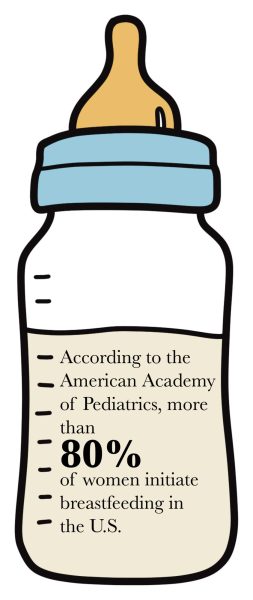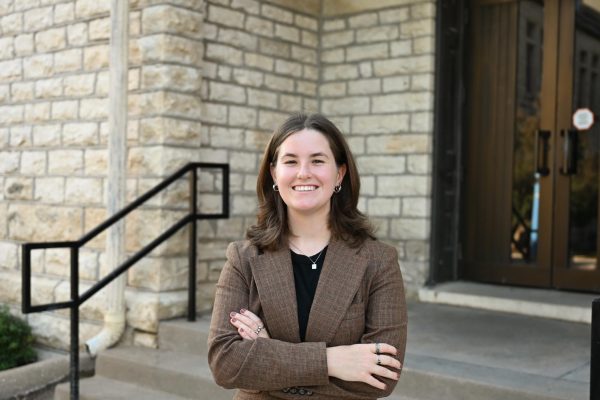The Riley County Health Department works to retain high breastfeeding rates and uphold its title as a “Breastfeeding Friendly Local

Health Department,” awarded by the Kansas Breastfeeding Coalition on March 1.
Brenda Bandy, executive director of the KBC, said U.S. culture “hasn’t normalized breastfeeding.”
“It’s difficult for families to continue breastfeeding because there are many hurdles,” Bandy said. “The health department plays a critical role because it’s a one-stop shop for breastfeeding support, and families need this support until breastfeeding is normal like it is in other countries.”
Bandy said challenges can include not knowing where to go for support in the early days of breastfeeding, local health providers possibly lacking education on breastfeeding and returning to work without supportive employers.
Bandy said a health department with KBC criteria is necessary to overcome the hurdles.
“This is important so when you walk into the RCHD, you immediately feel breastfeeding is normal,” Bandy said.
Cathy Jones, RCHD Women, Infant, and Children dietician, said RCHD has unique resources that support breastfeeding families.
“Our referral system between Via Christi, maternal child health and the WIC program allows clients to provide consent for HD programs to be notified of births, so follow-up support can be provided as soon as possible,” Jones said.
Through grant funds provided by United Methodist Health Ministry Fund, RCHD purchased multi-user breast pumps to rent to mothers. It costs $50 to use the pump for up to one year, and most parents can receive a pump from their insurance or from WIC if they qualify.
According to KBC, nearly 90% of new parents in Kansas start breastfeeding after giving birth, but only half are still breastfeeding six months later. The World Health Organization recommends a child exclusively breastfeeds for the first six months and continues breastfeeding with introduction to complementary foods until two years old.
“Human milk provides complete nutrition for infants as well as antibodies, stem cells, prebiotics, enzymes, hormones — all contributing to the short and long-term health of the infant and mother,” Jones said. “A community that supports breastfeeding by providing welcoming spaces, supportive employers, education, referrals and access to care contributes to the well-being and health of infants, families and the community as a whole.”























































































































Randy Haas • Apr 15, 2024 at 9:18 pm
I thought this article was a nice informative piece.